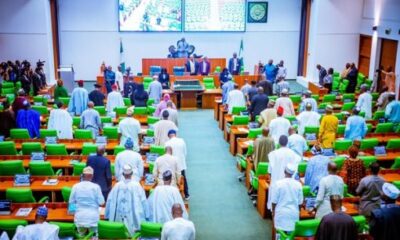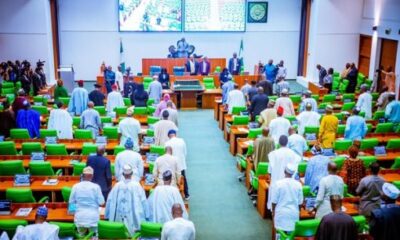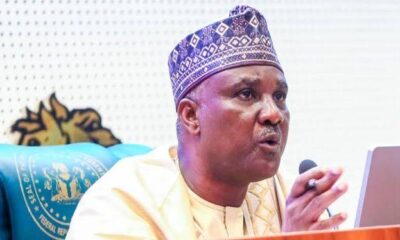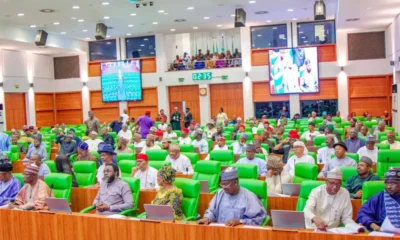The Nation
Reps rejects bill to expand Islamic Law in 1999 constitution
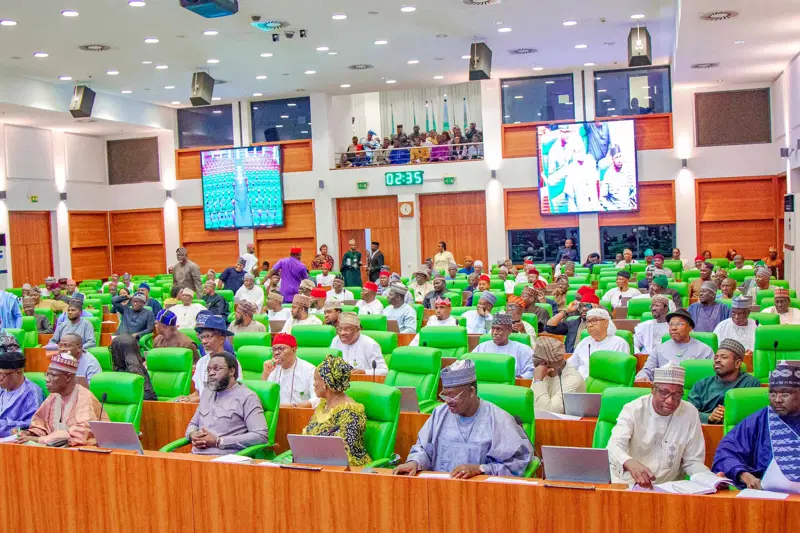
On Thursday, the Nigerian House of Representatives voted against a bill proposing to expand the role of Islamic law in the 1999 constitution.
Sponsored by Rep. Aliyu Missau, the constitutional amendment aimed to modify sections 24, 262, 277, and 288, removing the term “personal” from references to “Islamic law” to allow “Islamic law” to stand alone.
The bill’s rejection underscores the sensitivity surrounding constitutional changes related to religious laws in Nigeria, where balancing diverse religious and cultural interests remains crucial. Lawmakers expressed concerns that the amendment could lead to unintended consequences, potentially impacting the nation’s secular legal framework.
Section 262 (1) of the constitution states that: “The Sharia Court of Appeal shall, in addition to such other jurisdiction as may be conferred upon it by an Act of the National Assembly, exercise such appellate and supervisory jurisdiction in civil proceedings involving questions of Islamic personal law”.
Leading the debate, Missau said the inclusion of the word “personal” after “Islamic” restricts its application, especially in Islamic commercial laws.
“The 1999 constitution provided for personal Islamic law. The constitution did not envisage the dynamism and development that may come into the country,” he said.
“For instance, in 2003, the constitution did not foresee the advent of Jaiz Bank which operates under commercial Islamic law.”
The lawmaker said the word “personal” should be removed to benefit Islamic commercial law and Islamic international law, among others.
During the debate, legislators were split along regional lines, with northerners supporting the bill while their southern counterparts kicked against it.
Opposing the bill, Solomon Bob from Rivers said the amendment would broaden the application of Islamic law beyond the “personal matters” envisaged by the framers of the Constitution.
“The implication is that if the word ‘personal’ is removed, Islamic law would have broader implications. The word ‘personal’ was put there for a reason,” the lawmaker said.
Abdul Hakeem Ado from Kano supported the bill, saying Islamic commercial law needs to be sustained.
Saidu Abdullahi from Niger state and Ahmed Satomi from Borno were among the lawmakers who spoke in favour of the bill.
Jonathan Gaza from Nasarawa, Ademorin Kuye from Lagos, and Awaji-Inombek Abiante from Rivers kicked against the proposed legislation.
Bamidele Salam from Osun strongly opposed the bill, saying issues of religion should be restricted to personal preference because Nigeria is a secular state.
“As students of history, we all know the background of this particular section during the various constitutional assemblies of 1979, 1989, and 1999. The drafters of the constitution were highly sensitive to religion,” he said.
“At the 1979 constitutional assembly, this particular section was very contentious until the military intervened to halt further debate, stating that the application of Islamic law would be restricted to personal matters like estates.
“We must be careful with any changes to the constitution that could further widen divisions in Nigeria. In any case, the matters my colleague seeks to address are already covered by existing laws.”
The bill was however rejected when it was put to a voice vote by Deputy Speaker Benjamin Kalu, who presided.




